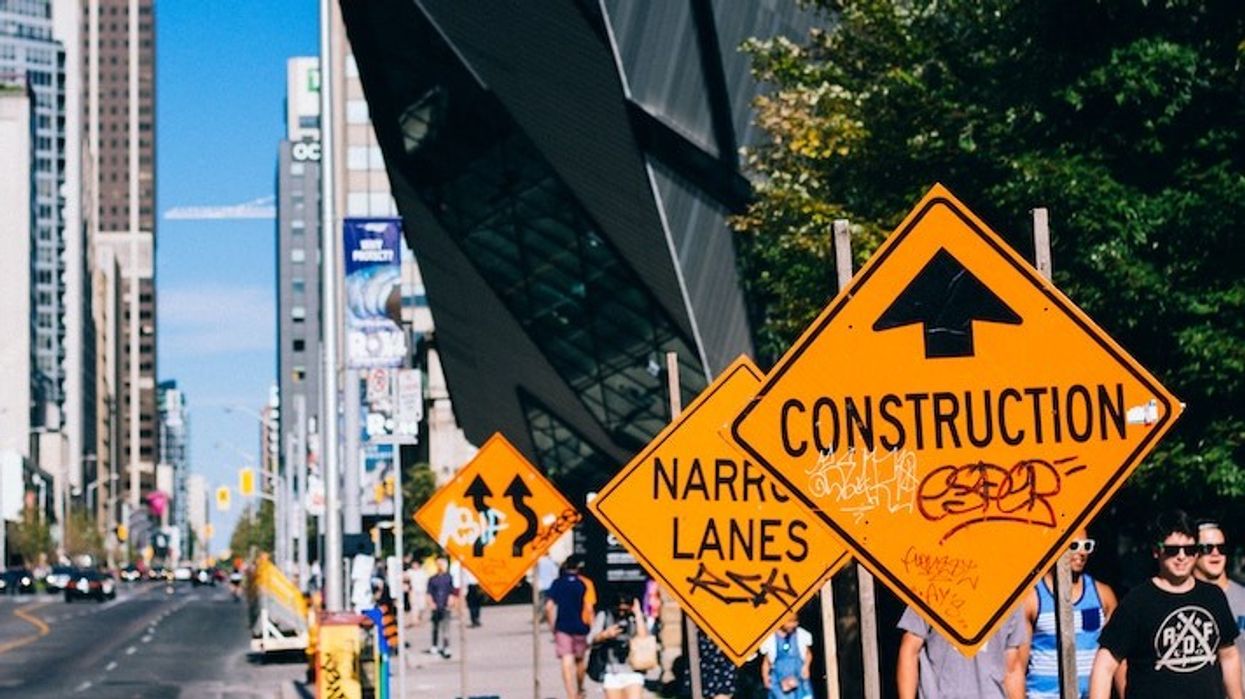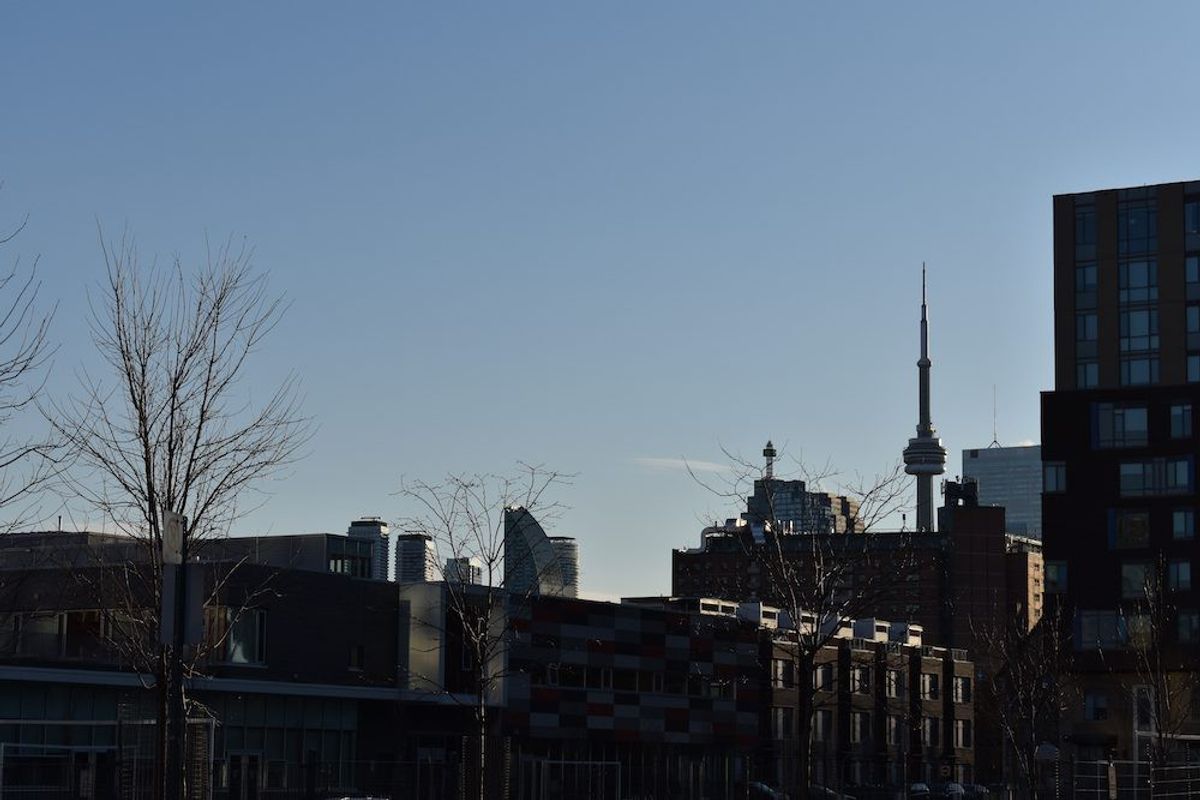If you've spent any time walking, cycling or driving in downtown Toronto, you know how frustrating it can be to discover a street, bike path, or sidewalk blocked because of construction.
Not only is it a huge inconvenience for those trying to get through the area, but it can be dangerous for pedestrians, motorists, and cyclists to navigate.
Luckily, city staff are looking into denying condo developers permission to block lanes of traffic, sidewalks or bicycle lanes during construction.
On Thursday, the city's Infrastructure and Environment Committee voted unanimously to make the request to explore the "logistical and legal implications of eliminating right of way occupancy for private construction projects."
READ: Budget 2020: What The Average Toronto Property Tax Increase Will Be
Councillor Josh Matlow, who represents Ward 12, Toronto-St. Paul's and put forward the motion said traffic congestion is a significant problem for all Torontonians, in a letter he presented before the committee at City Hall on Thursday.
In the letter, he highlighted the GTA suffers from the longest work commute times in North America, which affects motorists in Toronto and across the region.
"Moreover, city policies have adapted to that reality and now encourage residents to take transit, walk, and bike. However, the increased need for space on our streets has not been reflected in Toronto's policy for right-of-way occupancy by developers," said Matlow.
"At present, the default position of the city is to almost always grant requests for lane and sidewalk closures to facilitate construction."
He added that some condo developments can result in lane blockages for upwards of two years.
On Thursday, Matlow asked the Infrastructure and Environment Committee to consider the implications of a new right-of-way occupancy permit policy, that if approved by council, would deny developers from receiving these permits, except when the developer proves that no other options are available.
And now that Matlow has the Infrastructure and Environment Committee's support, his motion will go before city council at the next meeting at the end of January.
If all goes well during this meeting, Toronto's General Manager of Transportation Services and Chief Planner will put together a report on "implementing a new right-of-way occupancy permit policy that defaults to a denial of requests" in the second quarter of 2020.




















